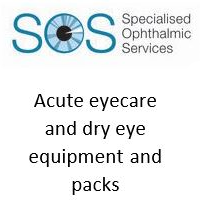Professional Matters Optometry & Dispensing
High Street optometry poised to take pressure off GPs as doctors warn of ‘dangerously high workloads’
High Street optometry poised to take pressure off GPs as doctors warn of ‘dangerously high workloads’
Figures released by the Royal College of General Practitioners reveals the extent of strain on GPs and a deepening equality gap in patient care for deprived areas
Today the Royal College of General Practitioners (RCGP) release figures that show GPs in deprived areas responsible for almost 2,500 patients per head, almost 300 more than affluent areas, warning of ‘dangerously high workloads’.
The RCGP are calling on the new Government to take urgent action on primary care and reduce the pressure on overstretched GPs.
 Responding to the call, Adam Sampson, Chief Executive of the Association of Optometrists said: “GPs are at crisis point. Our primary care system, which is failing patients, and making unnecessary demands on a GP service already on its knees, needs change.
Responding to the call, Adam Sampson, Chief Executive of the Association of Optometrists said: “GPs are at crisis point. Our primary care system, which is failing patients, and making unnecessary demands on a GP service already on its knees, needs change.
“Our data shows that millions of appointments are taken up with eye health complaints that optometrists on the High Street are trained to manage.
“And crucially, we know the public want to access clinical care locally and recognise optometrists are the eye experts on the High Street to do the job.
“Our polling shows the public are deeply worried about the pressure on GPs and agree investment into primary care services including our hardworking colleagues in pharmacy and dentistry is desperately needed. The Government must meet its manifesto pledge to shift the balance from the acute to care in the community.”
Dr Peter Hampson, Optometrist and Clinical and Policy Director at the AOP supports the move, saying: “Optometrists on the High Street have the premises, the equipment and most crucially, the clinical expertise to deliver specialist eye care that is accessible.
“Optometrists are qualified to treat and manage a broad range of eye health conditions and have the capacity to do more. But we need the political vision to ensure primary care optometry is utilised, allowing patients to access more eye care in their community which is both timely, high-quality and most importantly, can help to tackle the NHS backlog.”
As part of its One million appointments campaign the AOP calls on the Government and NHS England to support a minor and urgent eye care pathway created by the optometry sector, to improve eye care in the local community.
The AOP’s most recent research of its members and a public poll shows:
- Three-quarters (75%) of optometrists have seen a patient in the last six months who had booked a GP appointment for an eye complaint
- A public poll shows a third (32%) of people who experienced an eye condition in the last five years approached their GP first – with another third (31%) choosing healthcare routes other than opticians
- The overwhelming majority (81%) of those people surveyed who had an eye condition in the past five years agreed that GP services are already overstretched and will only get worse
- The majority (84%) agree that they want to be able to access additional health care in the community – including opticians, pharmacists and dentists
- 1.3m appointments delivered by GPs are for hay fever medicines alone that opticians can provide with their current training, and an estimated 5 million are for eye complaints that opticians can manage on the High Street.

























